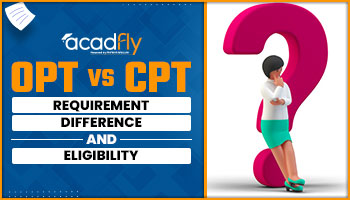

Studying abroad in France offers a unique opportunity to immerse yourself in a rich culture, a world-renowned education system, and the chance to learn the French language. France is home to many prestigious universities, a variety of programs taught in English, and a vibrant student life that attracts thousands of international students each year. However, before you embark on this exciting journey, you must understand the eligibility criteria and the necessary documents required for your application process.
Understanding the Eligibility for French Education
When considering the eligibility for French education, it's important to note that the requirements can vary based on the level of education you wish to pursue. Whether you're looking to enroll in a bachelor's, master's, or doctoral program, each level has specific prerequisites.
Bachelor’s Degree Programs
To apply for a bachelor's degree program in France, students must have completed their secondary education (high school diploma or equivalent). The following criteria are usually expected:
-
Educational Background: Students should have completed the necessary high school education, often with a focus on subjects relevant to their intended field of study.
-
Language Proficiency: Depending on the program, students may need to demonstrate proficiency in French or English. Most universities require proof of language skills, such as passing the DELF/DALF for French or TOEFL/IELTS for English.
-
Admission Tests: Some programs may require students to take specific entrance exams or assessments.
Master’s Degree Programs
For master's programs, the eligibility criteria are more stringent, reflecting the advanced nature of the studies:
-
Bachelor’s Degree: Applicants must hold a relevant bachelor's degree or its equivalent. This is often assessed through transcripts and course descriptions.
-
Research Proposal: Many master's programs require a research proposal or a statement of purpose outlining the candidate’s interests and plans.
-
Language Requirements: As with bachelor's programs, language proficiency in either French or English is typically required.
Doctoral Programs
PhD candidates must meet the highest eligibility standards:
-
Master’s Degree: A relevant master's degree is necessary, and sometimes a strong academic record in a related field is required.
-
Research Proposal: A detailed research proposal outlining the intended research project is crucial.
-
Supervision Agreement: Applicants often need to find a faculty member who agrees to supervise their research before applying.
Required Documents for Studying in France
Once you have determined your eligibility, the next step involves preparing the necessary documentation for your application. Here’s a detailed look at the key documents you will need:
Academic Transcripts
Official transcripts from your previous educational institutions are essential. These documents should provide a clear record of your academic performance and courses taken. Transcripts must often be translated into French or English if they are in another language.
Language Proficiency Certificates
As mentioned, language proficiency is crucial. Depending on the language of instruction, students must submit certificates like:
-
DELF/DALF for French
-
TOEFL/IELTS for English
These tests assess your ability to communicate effectively in the respective language.
Statement of Purpose or Motivation Letter
This document outlines your reasons for choosing to study in France, your academic and career goals, and how the program aligns with your aspirations. It’s an opportunity to showcase your personality, motivations, and academic interests.
Letters of Recommendation
Most universities require two or three letters of recommendation from teachers or professionals who can vouch for your abilities and character. These letters should highlight your academic strengths and suitability for the program.
CV/Resume
A current CV or resume should include your academic background, work experience, internships, and any other relevant activities. This document provides a comprehensive view of your qualifications and experiences.
Passport and Visa Documents
A valid passport is essential for studying abroad. Alongside your passport, you will need to apply for a France student visa, which involves providing proof of acceptance from a French university, financial resources, and accommodation arrangements.
Financial Documents
To demonstrate your ability to support yourself financially while studying in France, you may need to provide bank statements, proof of scholarships, or sponsorship letters.
The France Student Visa: An Essential Step
Securing a France student visa is a vital part of the process of studying abroad in France. The visa application process can seem daunting, but understanding the requirements can make it easier. Here’s what you need to know about the student visa process.
Types of Student Visas
There are primarily two types of student visas available:
-
Short-Stay Visa: For students enrolled in programs lasting less than 90 days.
-
Long-Stay Visa: For students attending programs that last longer than 90 days, which is usually the case for degree programs.
Application Process
The application process for a student visa can be straightforward if you follow the necessary steps. Understanding these steps will help you prepare effectively for your move to France. Below is a detailed overview of the application process, which outlines the critical actions you need to take. Make sure to gather all the required documentation and adhere to the procedures outlined by the French consulate or embassy in your country.
|
Step |
Description |
|
Gather Required Documents |
Compile all necessary documents, including proof of acceptance, financial resources, accommodation details, and health insurance. |
|
Complete the Visa Application Form |
Fill out the appropriate visa application form, which can usually be found on the website of the French consulate or embassy in your country. |
|
Book an Appointment |
Schedule an appointment with the French consulate or embassy to submit your application and biometric data. |
|
Attend the Visa Interview |
During your appointment, you will submit your documents and may be asked questions about your study plans and intentions in France. |
Visa Fees and Processing Time
Visa fees vary depending on the type of visa you are applying for, and processing times can range from a few weeks to several months, depending on the consulate’s workload. It's advisable to apply for your visa well in advance of your intended start date.
Tuition Fees in France: What to Expect
Understanding tuition fees in France is crucial for budgeting your studies. Tuition rates can differ significantly based on whether you are attending a public university or a private institution.
Public Universities
Public universities in France have relatively low tuition fees, especially for EU students. The average tuition fees for international students range from €2,770 to €3,770 per year for bachelor's programs and €3,770 to €6,000 for master's programs. These fees may vary based on the specific university and program of study.
Private Institutions
Private universities tend to have higher tuition fees, which can range from €5,000 to €20,000 per year or more, depending on the institution and program.
Additional Costs
In addition to tuition fees, students should budget for living expenses, including accommodation, food, transportation, and health insurance. The average living cost in France can range from €800 to €1,500 per month, depending on the city.
Tuition Fees and Living Expenses in France
|
Type of Institution |
Average Annual Tuition Fees |
Average Monthly Living Costs |
|
Public University |
€2,770 - €6,000 |
€800 - €1,500 |
|
Private University |
€5,000 - €20,000 |
€800 - €1,500 |
This comprehensive guide provides you with all the necessary information to embark on your journey to study abroad in France. By understanding the eligibility requirements, required documents, tuition fees, and scholarship options, you are well-equipped to take the next steps in your academic career.
Scholarships for France: Making Education Affordable
To help mitigate the financial burden of studying abroad in France, several scholarship options are available for international students.
Types of Scholarships
-
Government Scholarships: The French government offers various scholarships for international students, such as the Eiffel Excellence Scholarship Program, which targets top-tier international students pursuing master’s or doctoral programs.
-
University Scholarships: Many French universities offer scholarships specifically for international students based on academic merit or financial need. Students should check the financial aid section of their chosen university's website for more information.
-
Private Scholarships: Numerous organizations, both public and private, offer scholarships for students studying abroad. These can include grants from foundations, NGOs, or companies that aim to support international education.
How to Apply for Scholarships
Applying for scholarships usually involves submitting a separate application, which may include:
-
Academic transcripts
-
Letters of recommendation
-
A personal statement outlining your academic and career goals
-
Proof of financial need, if applicable
Conclusion
Studying abroad in France is an enriching experience that can significantly enhance your academic and personal growth. By understanding the eligibility criteria and preparing the necessary documents, you can navigate the application process more effectively. Additionally, being aware of tuition fees and available scholarships can help you plan financially for your studies. France, with its esteemed educational institutions and vibrant culture, offers a unique backdrop for your academic journey.
Frequently Asked Questions
1. What are the eligibility criteria for studying in France?
2. What documents do I need to apply for a French university?
3. How do I apply for a student visa to France?
4. What are the tuition fees for studying in France?
5. Are there scholarships available for studying in France?









